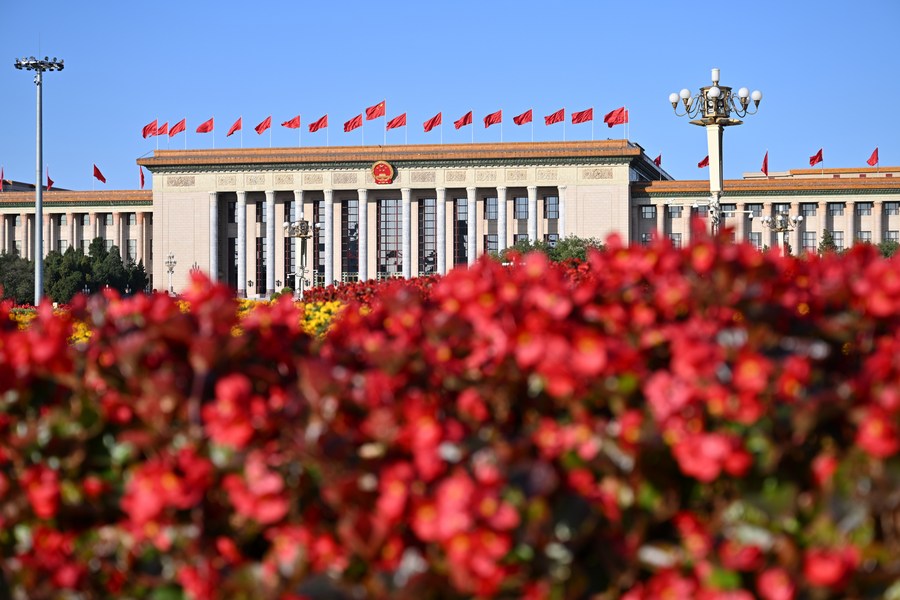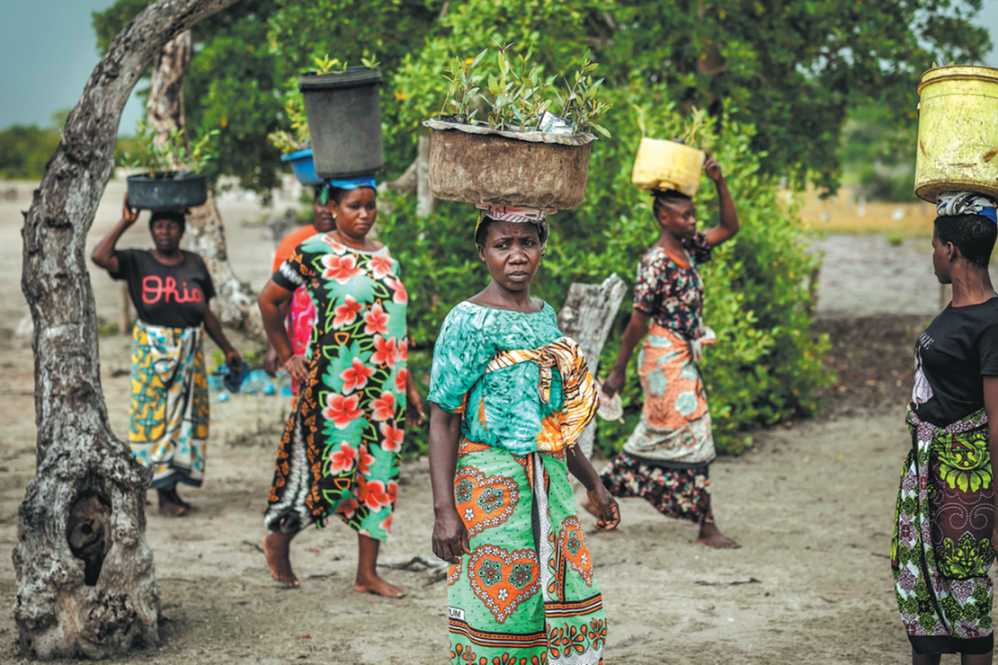A meeting that signals pragmatic approach


China's annual two sessions, the centerpiece of its political calendar, is once again offering a unique insight into how the world's second-largest economy is charting its course with efficient and democratic decision-making. Consisting of the 14th National People's Congress, China's top legislature, and the 14th National Committee of the Chinese People's Political Consultative Conference, the country's top political advisory body, the largest gathering of policymakers, business leaders, and social representatives serve as both a legislative forum and a policy barometer.
What makes this year's two sessions particularly significant is the country's efforts to stabilize the world's key driver of growth against the backdrop of a shifting global economic order. With trade dynamics evolving and external uncertainties looming, the importance of clear and decisive policymaking cannot be overstated.
The positive signals emerging from the two sessions point to China's commitment to sustainable growth, innovation-driven quality development, the continued expansion of domestic demand, and persistence in multilateral cooperation.
One of the key themes that dominates discussions is China's gross domestic product growth target. China has set the target at around 5 percent for this year, reinforcing confidence in the country's economic trajectory. The emphasis this year can rest on stability and resilience. Despite global headwinds, policymakers remain committed to ensuring a robust economic recovery through fiscal and monetary measures.
According to the Government Work Report released on Wednesday, China will adopt a "more proactive" fiscal policy — with an increased deficit ratio target and expanded local government bond issuance — and a "moderately loose" monetary policy. This approach underscores the government's recognition of the need to support infrastructure projects, technology investment and social welfare programs.
A "moderately loose" monetary policy will provide further stimulus to the economy, with interest rate cuts and adjustments to reserve requirements.
A key aspect of China's economic policy this year is the push to stimulate domestic demand. With rising trade protectionism and shifting global supply chains, China is focusing on strengthening its internal market. This means greater emphasis on consumer spending, industrial upgrades and technological innovation. Policies aimed at supporting household consumption and private-sector confidence will likely take center stage.
Another critical element of the two sessions is the focus on technological advancement and innovation. China has long recognized that its economic future depends on its ability to lead in key technological fields, from artificial intelligence and semiconductors to green energy.
The meetings are expected to reinforce the country's commitment to research and development, talent cultivation, and high-tech manufacturing. A renewed emphasis on industrial modernization will ensure that China remains competitive in the face of external challenges and shifting global supply chains, while achieving environmental sustainability and climate goals of peak carbon emissions before 2030.
Beyond economic policy, the two sessions highlight China's evolving approach to governance and representation. The NPC, with nearly 3,000 deputies, reflects a broad cross-section of Chinese society, including ethnic minorities, farmers, workers, and technical professionals, among others. The CPPCC National Committee, a consultative body, brings together political advisers from diverse fields to offer professional policy recommendations. This broad participation ensures that truly democratic and national decision-making considers a wide range of perspectives and societal needs.
In an era of heightened global turbulence, Beijing's approach to trade, regional stability and multilateral cooperation will be of critical importance. The two sessions provide an opportunity for China to signal its willingness to engage in constructive diplomacy while safeguarding its national interests. As global tensions persist, maintaining open channels of communication and fostering economic partnerships will be key to sustaining stability in the international arena.
Perhaps one of the most striking aspects of the two sessions is the efficiency and discipline with which deliberations are conducted. Unlike the often gridlocked political systems seen elsewhere, China's model of governance ensures that decisions are made swiftly and effectively through extensive democratic consultation and consensus building. The emphasis on long-term planning and policy continuity provides a level of stability that many other nations struggle to achieve. While the Chinese system is distinct from Western models, its ability to execute strategic plans and adapt to global changes remains a point of interest for policymakers worldwide.
Among the key takeaways is the country's unwavering commitment to regional stability, global peace, and progress for a community of shared future. The positive expectations surrounding the two sessions reflect not just confidence in China's leadership and its political and economic systems, but also an acknowledgment that its continued stability and development are vital to the broader global economy. With a clear road map for the future, China is poised to contribute more to manage the complexities of an evolving world order.
One thing is certain: The two sessions remain a defining moment in China's annual political and economic calendar, providing not only closeups of China's modern governance but also a reminder that different political systems can yield effective results. At a time when much of the world is grappling with volatility, the steady and pragmatic approach of China's leadership offers a striking counterpoint for new thinking.
The author is an international affairs commentator and freelancer based in Karachi, Pakistan.

































